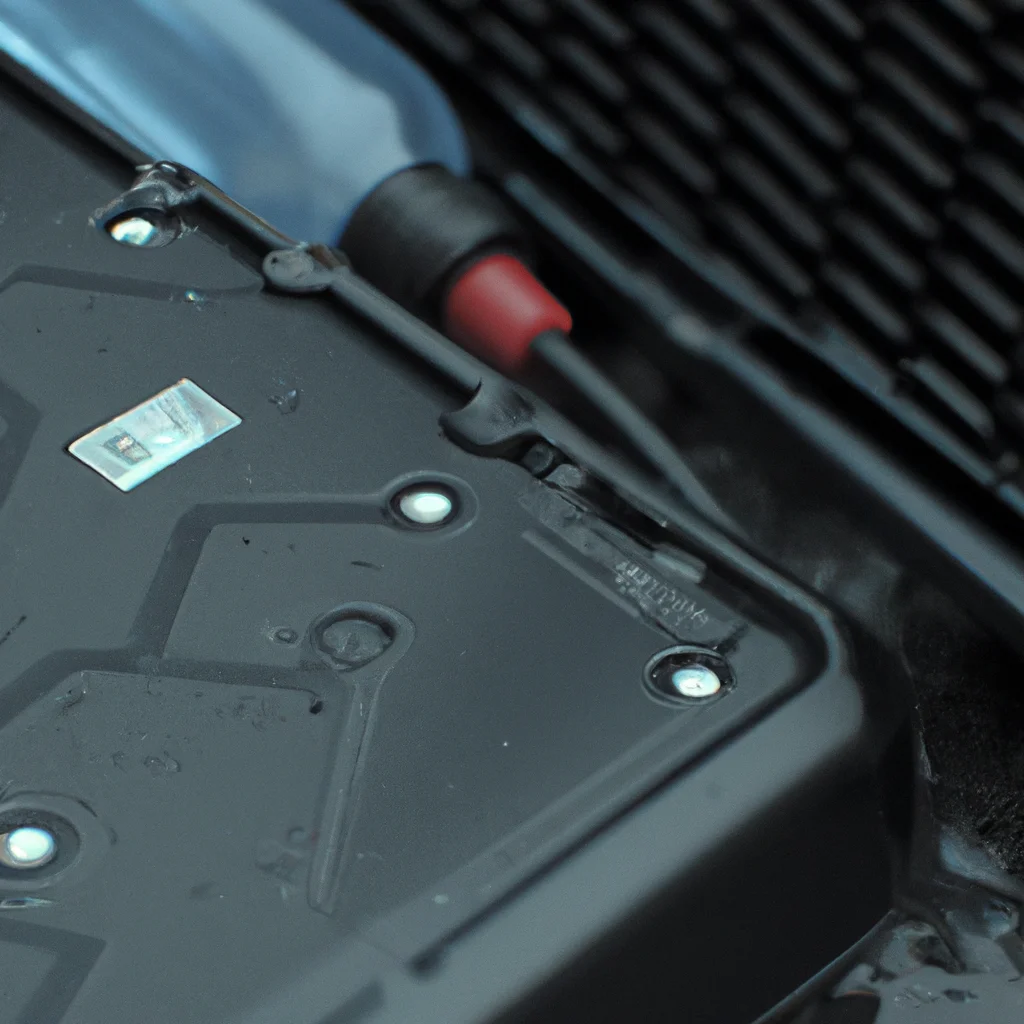How does a laptop battery work?


How does a laptop battery work?
A laptop battery is an essential component of any laptop computer. It powers the computer when there is no access to a power source. However, have you ever wondered how a laptop battery works? In this article, we will explore the technology behind laptop batteries, how they work, and factors that affect their performance.
How It Works
Laptop batteries are rechargeable batteries that store electrical energy. They are made up of several cells that are connected in series to provide the necessary voltage to power the laptop. Each cell contains a cathode, an anode, and an electrolyte. The cathode is typically made of lithium cobalt oxide, while the anode is made of graphite. The electrolyte is usually a lithium salt in an organic solvent.
When a laptop is turned on, the battery supplies power to the laptop’s components. The electrical energy stored in the battery is converted into chemical energy, which is then converted back into electrical energy when it is needed. As the battery discharges, the lithium ions move from the anode to the cathode through the electrolyte. This movement of ions generates an electrical current that powers the laptop.
When the battery is depleted, it needs to be recharged. During the charging process, the electrical current is reversed, and the lithium ions move from the cathode back to the anode. This process restores the battery’s energy and prepares it for the next use.
Battery Technology
There are several types of laptop batteries, including nickel-cadmium (NiCad), nickel-metal-hydride (NiMH), and lithium-ion (Li-ion). NiCad batteries are not commonly used in laptops anymore due to their low capacity and high toxicity. NiMH batteries have a higher capacity than NiCads but are still less commonly used due to their lower energy density compared to Li-ion batteries.
Li-ion batteries are currently the most widely used type of laptop battery. They have a high energy density, are lightweight, and have a long lifespan. Li-ion batteries are also less susceptible to the “memory effect” than NiCad and NiMH batteries. The memory effect is a phenomenon where a battery’s capacity decreases when it is repeatedly recharged before being fully discharged.
Battery Life
The battery life of a laptop depends on several factors, including the battery’s capacity, the laptop’s power consumption, and the usage patterns. The capacity of a battery is measured in milliampere-hours (mAh) and determines how long the battery can provide power to the laptop before needing to be recharged.
The power consumption of a laptop depends on the components and software running on it. High-performance components, such as a powerful processor and a dedicated graphics card, consume more power than lower-end components. Running intensive software, such as video editing software or video games, also consumes more power.
Usage patterns also affect battery life. For example, using Wi-Fi or Bluetooth connections, playing videos or music, and having the screen brightness turned up all consume more power. On the other hand, using the laptop for basic tasks, such as word processing and web browsing, consumes less power.
Laptop Charging
To maximize the lifespan of a laptop battery, it is important to use the correct charging practices. Li-ion batteries should be charged frequently and kept at a moderate charge level, between 20% and 80%. This helps prevent overcharging and undercharging, which can damage the battery and reduce its lifespan.
It is also important to use the correct charger for the laptop. Using a charger with the wrong voltage or current can damage the battery and potentially cause a fire hazard. Additionally, it is recommended to remove the battery when the laptop is plugged in for extended periods to prevent overcharging.
Battery Performance
Over time, a laptop battery’s performance will naturally degrade. This is due to the chemical reactions that occur during the charging and discharging cycles. The capacity of the battery will decrease, and it will not be able to hold a charge as long as it did when it was new.
To extend the lifespan of a laptop battery, it is recommended to avoid exposing it to extreme temperatures, both hot and cold. Extreme temperatures can cause damage to the battery and reduce its performance. Storing the laptop in a cool, dry place when it is not in use can also help preserve the battery’s lifespan.
In conclusion, laptop batteries are an essential component of any laptop computer. They work by converting chemical energy into electrical energy to power the laptop’s components. Li-ion batteries are currently the most widely used type of laptop battery due to their high energy density and long lifespan. The battery life of a laptop depends on several factors, including the battery’s capacity, the laptop’s power consumption, and usage patterns. To maximize the lifespan of a laptop battery, it is important to use the correct charging practices and avoid exposing it to extreme temperatures.
Recent Posts
How do I create an engaging and informative online quiz or assessment?
Creating an engaging and informative online quiz or assessment can be a powerful tool for… Read More
What are the most effective methods for managing and reducing work-related stress in the hospitality industry?
Work-related stress is a common issue in the hospitality industry, where employees often face long… Read More
How can I improve my assertiveness and communication skills in a leadership position?
In a leadership position, assertiveness and effective communication skills are crucial for success. Being able… Read More
What are the key elements of a successful employee recognition and rewards program?
Employee recognition and rewards programs play a crucial role in motivating and engaging employees, as… Read More
How do I effectively manage and respond to customer feedback and reviews?
Customer feedback and online reviews play a crucial role in shaping a company's reputation and… Read More
What are the best strategies for effective time management as a stay-at-home parent?
Effective time management is crucial for stay-at-home parents who juggle multiple responsibilities on a daily… Read More